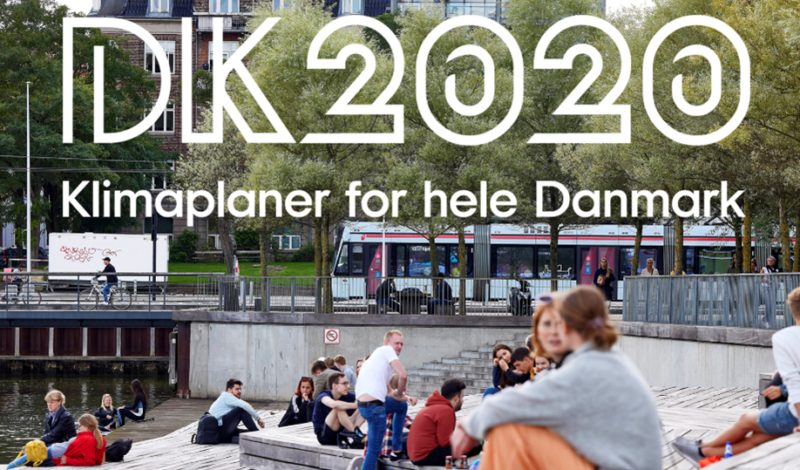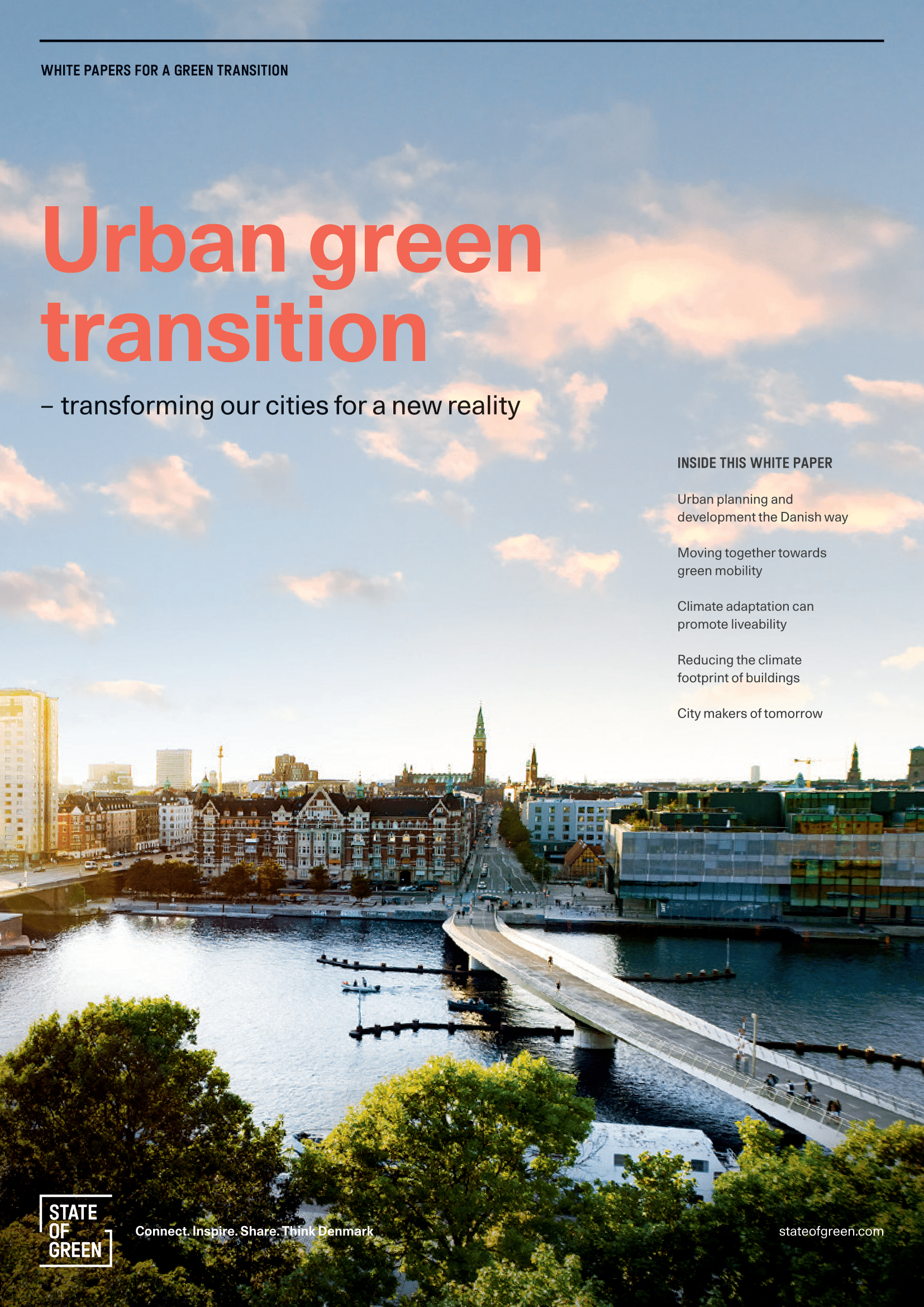Solution provider

Case
Urban planning and development
Climate change adaptation
Green buildings
+2


Add the case to your visit request and let us know that you are interested in visiting Denmark
In the DK2020 project, Danish municipalities develop ambitious climate action plans that have the level of ambition and action needed to play their part in meeting the objectives of the Paris Agreement. The plans are developed through a facilitated peer learning process, utilizing C40’s Climate Action Planning Framework (CAPF) adapted to a Danish context. All Danish municipalities are invited to participate in the project and develop ambitious climate action plans (CAP). So far, 61 municipalities have adopted action plans approved by C40 and another 36 municipalities are currently underway (April 2023).
In April 2023, the project was transformed and expanded into the Climate Alliance, a five-year commitment to aid the municipalities in implementing their CAPs, reducing GHG emissions and enhancing climate resilience throughout Denmark.
The project supports local governments in Denmark in mitigating and adapting to climate change. Participants develop a CAP with a target of emissions neutrality by 2050 at the latest, while also demonstrating how the city will adapt and improve its resilience to the climate hazards that may impact the municipality now and in future climate change scenarios.
In doing so the local governments engage with the community to inform the plan and identify key social, environmental and economic benefits expected from implementing the plan, and establish ways to ensure an equitable distribution of these benefits among the population.
To meet the objectives of the Paris Agreement, climate action planning needs to shift to a new levels of ambition, driving rapid and systemic change on the ground. Local governments can play a key role in this.
The DK2020 project has the Paris Agreement as its point of departure, and the objective of limiting global warming to 1.5 degrees above preindustrial levels. Utilizing this target, C40 cities developed a roadmap for their member cities to deliver their fair share of greenhouse gas reductions – the Deadline 2020 program – and a framework for developing CAPs compliant with the Paris agreement in terms of both mitigation, adaptation and sustainable development – The Climate Action Planning Framework (CAPF).
Copenhagen – Denmark’s sole member of C40 Cities – successfully had its climate action plan approved as compliant with the CAPF in 2018. DK2020 was created with the aim leveraging the knowledge and expertise of C40 in granting the opportunity of developing ambitions CAPs following the CAP Framework to all Danish municipalities.
DK2020 began as a pilot project funded by Realdania with CONCITO and C40 as project lead providing technical support for the Danish municipalities. The DK2020 pilot project had a simple and versatile set up aimed at creating flexibility in the pilot phase.
Subsequently, the project has been expanded into a full-scale partnership between Realdania, KL (Local Government Denmark) and the five Danish Regions who provide equal funding and constitute the project leadership. The combination of philanthropic support and substantial backing from local government organisations has proven key to the success of the project. This stage saw a more comprehensive organisational set-up to better accommodate the high number of participating municipalities. The set-up has been summarised in the figure below.
The project is managed by the Danish independent green think tank CONCITO who alongside C40 provide tools and knowledge on climate action planning and ensure a consistent level of quality. Certification of the climate action plans (CAPs) is performed by C40. Due to the high number of participating municipalities, the peer learning process has been distributed to five geographic organisations corresponding to the number of Danish regions who provide direct technical support and guidance to municipalities tailored to their specific context. The duality in this set-up has been fruitful in promoting CAPs tailored to local challenges but in line with global goals.
Key components for the success of the project were the development of:
All municipalities taking part in the DK2020 project receive various types of support, ensuring they will succeed in developing an ambitious CAP. The list of programme support includes:
In April 2023, the partnership behind DK2020 has engaged in a new partnership, The Climate Alliance, aimed at supporting the implementation of the CAPs developed through DK2020. The project will run until the end of 2027 delivering among other priorities:
The new partnership will carry on the decentralized supporting structure of DK2020, by retaining the geographical organisations from DK2020, but refocusing their work to support implementation as well as identify and support climate development tracks.
Taken together, the activities of The Climate Alliance is aimed at enhancing the pace and ambition in transitioning the Danish economy and infrastructure towards climate neutrality and resilience.
By early 2023, we have conducted a review of the 59 municipal climate action plans that have been completed and certified. In doing so we assessed whether the targets, actions and trajectories can be said to be compatible with the Paris agreement. In the most recent IPCC synthesis report, it is estimated that limiting warming to 1.5°C with no or limited overshoot will require a reduction of greenhouse gas emissions by 43% in 2030 compared to 2019. Looking at the 59 Danish municipalities, they have a combined targeted reduction of 62% compared to their base year emissions (ranging from 2016-2020) and in their action-based trajectories they expect a combined emission reduction of 56% surpassing the targeted reduction of 43 %. We find that this is necessary, for the CAPs to be in line with the ‘fair share’ carbon budgeting approach of C40’s Deadline 2020 report as Danish municipalities have the capacity, and as such the responsibility, to reduce emissions beyond the global average.
The action plans have been reviewed in two studies of the 20 pilot municipalities and subsequently a study of the first 39 municipalities completing an action plan through the full-scale project.
Contributors
Realdania – a large philanthropic association based in Denmark committed to improving quality of life through the built environment.
KL – Local government Denmark is the association and interest organisation of the 98 Danish municipalities.
Danish Regions – the association and interest organisation of the five regions in Denmark.
C40 Cities – a global network of cities acting on climate change.
CONCITO – Denmark’s green think tank.
Realdania – a large philanthropic association based in Denmark committed to improving quality of life through the built environment.
KL – Local Government Denmark is the association and interest organisation of the 98 Danish municipalities.
Danish Regions – the association and interest organisation of the five regions in Denmark.
C40 Cities – a global network of cities acting on climate change.
CONCITO – Denmark’s green think tank.

This case is a part of the white paper “Urban green transition”:
A 40-page showcase of why holistic and strategic city planning and development within mobility and infrastructure, climate adaptation, as well as environmentally conscious architecture and construction, must take centre stage in the transformed cities of tomorrow.
Explore the white paper